
Centre for Qualitative Research Grows

Latest research and knowledge exchange news at Bournemouth University
This part of the blog features news and information for postgraduate research students and supervisors

British Federation of Women Graduates: Research Presentations Day
Saturday May 12th 2018 (10.30am – 4.00pm)
At BFWG HQ: 4 Mandeville Courtyard, 142 Battersea Park Road, London SW11 4NB
Are you a postgraduate woman student? Do you have research you would like to present to a discerning audience – and have the chance of winning a small prize of £120 for the best presentation to a general audience? Or would you like to join with us just to listen to other postgraduate women students presenting their research? The British Federation of Women Graduates Research Presentations Day (RPD) offers these opportunities. Past attendees, both presenters and audience, have found the Day thoroughly enjoyable and helpful in developing presentation skills.
If you think you would like to submit an abstract please go to the following webpages www.bfwg.org.uk where you can find more details and an abstract form. Closing date for applications is Saturday March 24th 2018.
All, postgraduates and anyone else interested (male or female), are welcome to attend as audience. Bona fide students (UG or PG) come free. For others there is a charge of £10. A sandwich lunch is included. For further information or to express interest in attending, please contact: rpd@bfwg.org.uk
Sent on the behalf of the Doctoral College, Researcher Development Programme 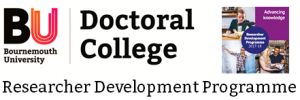

We are delighted to announce the registration for the
10th Annual Postgraduate Research Conference 2018 is now open!
More information about registration and booking are available from our registration page.
More details about the conference can be found at the website.
We look forward to welcoming you all at the conference.
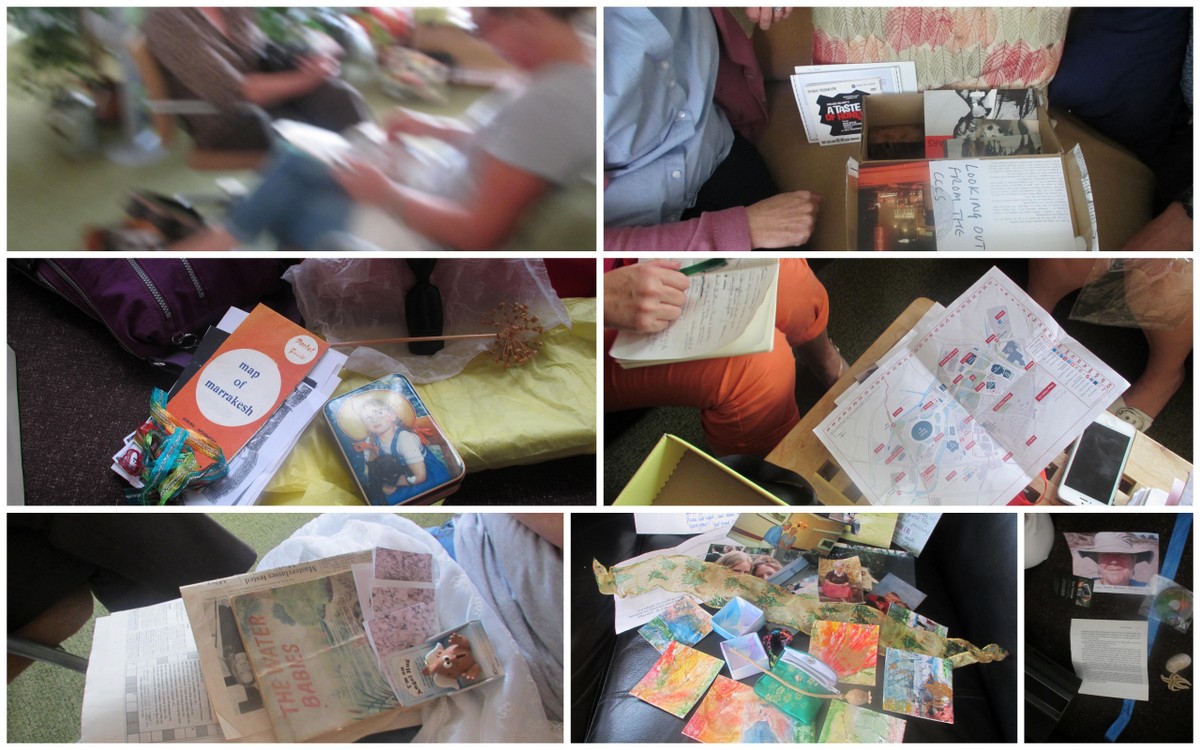
What is ”ephemera”? It consists of objects of little or no monetary value that represent moments in our past. They can include pamphlets, railroad tickets, stamps, old letters or photographs, a food stained recipe card, a small piece of clothing, an accessory like a ribbon or a badge, sheet music, keys, post cards, used concert or theatre tickets, a self‐penned poem or a song, or a drawing. They all have a story to tell if we are willing to listen.
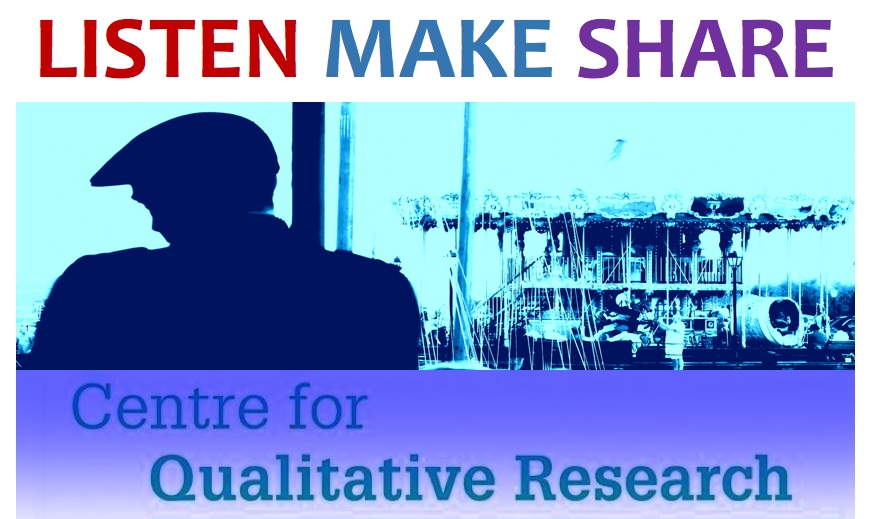
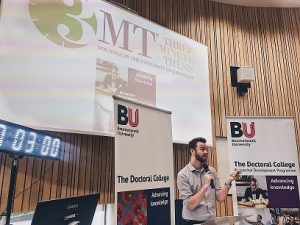
Only a few more days left to get your application in for the inaugural Three Minute Thesis (3MT) competition ⏱.
Find out more information about eligibility, prizes and how to apply on the Doctoral College Research Development Hub.
For any queries please email Natalie or Clare at PGRskillsdevelopment@bournemouth.ac.uk.
We look forward to receiving your application.
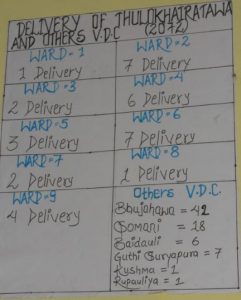 BU PhD student Mrs Preeti Mahato published her latest scientific paper ‘Determinants of quality of care and access to Basic Emergency Obstetric and Neonatal Care facilities and midwife-led facilities in low and middle-income countries: A Systematic Review’ in the Journal of Asian Midwives [1]. This paper is co-authored by Dr. Catherine Angell and Prof. Edwin van Teijlingen, who are both based in the Centre for Midwifery, Maternal & Perinatal Health (CMMPH) and Prof. Padam Simkhada, BU Visiting Professor and based at Liverpool John Moores University (LJMU). Journal of Asian Midwives is a free Open Access journal, freely available for anybody across the globe to read online.
BU PhD student Mrs Preeti Mahato published her latest scientific paper ‘Determinants of quality of care and access to Basic Emergency Obstetric and Neonatal Care facilities and midwife-led facilities in low and middle-income countries: A Systematic Review’ in the Journal of Asian Midwives [1]. This paper is co-authored by Dr. Catherine Angell and Prof. Edwin van Teijlingen, who are both based in the Centre for Midwifery, Maternal & Perinatal Health (CMMPH) and Prof. Padam Simkhada, BU Visiting Professor and based at Liverpool John Moores University (LJMU). Journal of Asian Midwives is a free Open Access journal, freely available for anybody across the globe to read online.
The authors highlight that maternal mortality is a major challenge to health systems in Low and Middle-Income Countries (LMICs) where almost 99% of maternal deaths occurred in 2015. Primary-care facilities providing Basic Emergency Obstetric and Neonatal Care (BEmONC) facilities, and facilities that are midwife-led are appropriate for normal birth in LMICs and have been proposed as the best approach to reduce maternal deaths. However, the poor quality of maternal services that leads to decreased utilisation of these facilities is among the major causes of maternal deaths worldwide. This systematic review studied factors affecting the quality of care in BEmONC and midwife-led facilities in LMICs.![]()
Thematic analysis on included studies revealed various factors affecting quality of care including facility-level determinants and other determinants influencing access to care. Facility-level determinants included these barriers: lack of equipment and drugs at the facility, lack of trained staff, poor attitudes and behaviour of service providers, and poor communication with women. Facility-level positive determinants were: satisfaction with services, emotional support during delivery and trust in health providers. The access-to-care determinants were: socio-economic factors, physical access to the facility, maintaining privacy and confidentiality, and cultural values. The authors include that improving quality of care of birthing facilities requires addressing both facility level and non-facility level determinants in order to increase utilization of the services available at the BEmONC and midwife-led facilities in LMICs.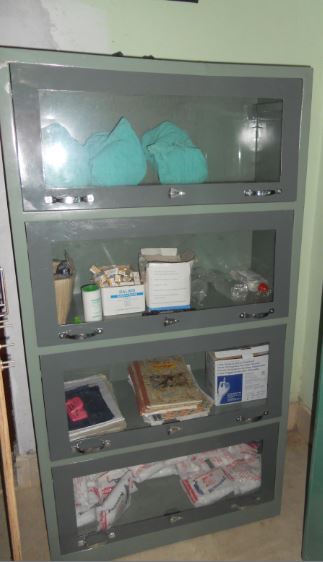
This is the fifth paper co-authored by CMMPH’s current most published PhD student. The evaluation of birth centres in rural Nepal by Preeti Mahato under joint supervision Dr. Angell and Prof. Simkhada (LJMU) and Prof. van Teijlingen.
References:

Do you want to showcase your PhD? Raise the profile of your research? Be in with the chance of winning over £500 worth in prizes?
If the answer is yes to any of the above then the 3MT® might be the opportunity for you.
The 3MT® competition cultivates students’ academic, presentation, and research communication skills.
Presenting in a 3MT® competition increases capacity to effectively explain research in three minutes, in a language appropriate to a non-specialist audience.
Eligibility: Active PhD and Professional Doctorate candidates who have successfully passed their transfer milestone (including candidates whose thesis is under submission) by the date of their first presentation are eligible to participate. If your Viva Voce will take place before the date of the University final (7 June 2018) you are not eligible to enter the competition.
Eligible applicants should submit a fully completed application form, to the Research Skills and Development Officers at PGRskillsdevelopment@bournemouth.ac.uk by midnight on Monday 5 February 2018.
We look forward to receiving your application.

Perhaps I’d better reveal more of our journey and tell you a bit about the group. We came together having booked our place at the auspiciously titled “Creative Writing Workshop for Academics” led by the legend that is Kip Jones. I would say it was a journey that we would all do again in a heartbeat.
Kip invited us, compelled us, to discard the shackles of academic or more formal forms of writing; we breathed in deeply and sought to find our inner selves, the child unconstrained by conventions that have both helped and hindered our writing over the years.
So, applying all that I learned from Kip, I am not going to over-analyse my writing and I will go with what feels right. Studying the ‘postcards’ from the group – Peter’s postcard will come first, just because it feels right, he sums up the experience for us all really.
From Peter Wolfensberger:
postcard to myself or
everything matters and nothing really does unless the moment you belong and love – exercise one
Struggling with my thesis I considered the creative writing workshop as a source for inspiration. So, I travelled long distance just to be confronted with myself and who I am and writing the story of my life on a postcard! Really?! Yes, – and no, there is more: Watching two boys on a crowded beach in the twenties has as much to do with me as trying to make sense of dreams that I can never remember. Writing a poem, a script treatment, a story, my story? In the end, it’s all just a tagline away from my thesis… But hey, I belonged to this wonderful group of people who kind of tried to do the same or something very different. Love you all! ‘
A bit more to reveal here with Mark’s postcard:
From: Mark Readman
Dear Group
‘Taglines, poems, life stories on postcards, writing, sharing, reading aloud and, ultimately, bringing my academic work to life through the art of storytelling – what a great way to start the new year!’
Now back to me. The writing is now getting more difficult. I can’t really complete with the beauty of the words conveyed in the postcards. Kip did promise that our first attempts will be quite bad and will need plenty of re-write. So, I walk away, I head off to make a cup of tea and read The Guardian. Nothing much to learn about me from my reading choice, nor, did I expect to learn much from it. I read it because I enjoy a few of the Saturday regulars and primarily because it’s still free on line. I click on one of my favourite columns, “Blind date” and this week’s column looks promisingly uplifting, entitled; “We parted with a kiss”. It was a good read, and I wondered if the format could be borrowed for the blog. And so I try below:
From: Susanne Clarke
The scene: The Group meets each other and Kip for our first “Blind Date”.
What were we hoping for:
Improvement, enlightenment, and perhaps a cry from the heart to help with the struggle that is a life centered around writing, at the very least, some basic hints and tips and a creative start to the year.
What we weren’t expecting, but I think we were all secretly hoping for as Caroline put so well in her postcard, “…one thing that I did take away from the creative writing workshop was passion and confidence in creative writing.”
Our First Impressions:
Positive, the group were warmly welcomed, Kip was laid back, relaxed and we got a sense it was all going to be ok. Kip set us some homework – to recall our night time dreams. I think we were all slightly scared.
What did we talk about:
Everything and anything, somehow Kip got us to reflect deeply, perhaps share things we wouldn’t normally be so bold with. Kip shared intimate reflections with us and made it ok to share back.
Any awkward moments:
There really should have been, we were stretched, we cried, we laughed, however, I don’t recall anything being awkward and I can’t find a hint of this in the postcards.
Although, if I am honest there was a moment for me. When Kip set us the task to create poems from our recollection of recent dreams, as a lifelong fan of Pam Ayres, my poem had to rhyme, consequently, my attempt lacked the depth of feeling conveyed by the poems written and read out loud by others in the group. But it did rhyme. I did feel slightly awkward, mine was rather light, however, in the end it was alright.
Good table manners?
We did lunch as a group, it was a great ending to our adventure, and our table manners were impeccable, as far as I could tell.
Would we introduce Kip to our friends?
A resounding yes, why wouldn’t anyone be less than delighted to meet Kip, and I would happily introduce Kip and the whole group to all my friends.
Describe Kip in three words:
Charismatic, warm and unconventional
What do we think Kip made of us?
He told us we were the best group he had ever taught, he was probably lying. He made us feel special though.
Did you go on somewhere?
This is where I will leave the ‘Blind Date’ format and head to something slightly more hypothetical, we are all now continuing somewhere, we are improved from our experience, but taking different paths. Let’s now share some more postcards from the group. I guess where we go next in our journey remains to be seen.
From: Trevor Hearing
Dear Group
….‘Kip’s Tree of Performative Social Science is a rare species that grows over ground and underground with each workshop I attend, sending hidden signals around the world through its mycelium that it is OK to write about yourself as a source of knowledge because in doing so we are feeding others with the compost of our imaginations. I learned the value of metaphor at this workshop’….
Love Trevor xxx
From: Caroline Jackson
Dear friends,
“…. The interventions offered by Kip and my workshop colleagues were productive in many ways. I came away with the following:
- I like writing.
- I can let go and write something not directly related to an academic output and it be worthwhile.
- Some questions and techniques to use in future writing activities, academic or not.
- Some ideas for my own students on their creative thinking and work.
Wish you were here, love Caroline xxx
From: Carly Stewart
Dear group
…” It opened up my thinking and reconnected me to the heart-felt reason I enjoy academia in the first place. I had time and space to think deeply about ideas and new ways to express them, not for outcome or in the surface skimming tone so often required of us. And the epiphany for me was that dedicating time for creative space did not send me spinning off on a tangent from academia but instead loosened my thoughts and reconfigured them in a way that inspired me to pick up the reins of academic writing once again.”
Love Carly xxx
And finally, from me (Susanne). I spent time with a colleague this week writing with a deadline to submit an abstract. I approached this with more confidence and my biggest lesson from Kip – I could hear his voice, “work on a catchy title” he said this a few times. Our title begins with “Shrek and the Onion…. “ It wouldn’t have done before Kip entered my life and thoughts. Will our abstract take us to the conference in the sun, who knows?
PS We would also like to thank others in the group who are not represented here but who contributed towards the experience.
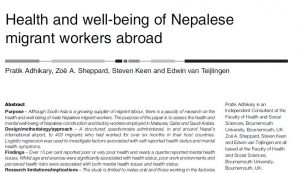 This last week two separate papers have been accepted on aspects of health and well-being among migrants workers from Nepal. The first in the International Journal of Migration, Health and Social Care is based on a completed PhD project in the Faculty of Health & Social Sciences with Dr. Pratik Adhikary as first author [1]. This paper ‘Health and well-being of Nepalese migrant workers abroad’ is co-authored by two former FHSS staff Dr. Zoe Sheppard and Dr. Steve Keen, and Prof. Edwin van Teijlingen of the Centre for Midwifery, Maternal & Perinatal Health (CMMPH).
This last week two separate papers have been accepted on aspects of health and well-being among migrants workers from Nepal. The first in the International Journal of Migration, Health and Social Care is based on a completed PhD project in the Faculty of Health & Social Sciences with Dr. Pratik Adhikary as first author [1]. This paper ‘Health and well-being of Nepalese migrant workers abroad’ is co-authored by two former FHSS staff Dr. Zoe Sheppard and Dr. Steve Keen, and Prof. Edwin van Teijlingen of the Centre for Midwifery, Maternal & Perinatal Health (CMMPH).
The second paper ‘A study of Health Problems of Nepalese Female Migrants Workers in the Middle-East and Malaysia’ was accepted by the Open Access journal BMC International Health & Human Rights [2]. The lead author of this paper is Bournemouth University (BU) Visiting Faculty Prof. Padam Simkhada (based at Liverpool John Moores University) and two of his co-authors are based in Nepal: Manju Gurung (chair of Pourakhi Nepal) and Dr. Sharada Prasad Wasti and one at BU: Prof. Edwin van Teijlingen .
There is a growing momentum in migration research at BU with further academic papers being published related to studies on migrant workers from Nepal [4-8], relatives of migrant workers [9], migration into the UK [10-12], Eastern European migration issues [13-15], migration and tourism [16], migration and the media [17] as well as migration in the past [18].
References:
 The BBSRCs Global Food Security (GFS) programme invites expressions of interest from post-doctoral researchers to take part in a Policy Lab on the determinants of food choice (e.g. biological, social, environmental, physical and economic) and the combination of interventions across these that will lead to healthier and more sustainable diets. Policy Labs bring together early career researchers from different disciplines to scope a policy-relevant issue, with teams forming at the workshop and then competing to write a synthesis report. The winning team at the workshop will receive a £5,000 Policy Lab award to write a policy-facing report.
The BBSRCs Global Food Security (GFS) programme invites expressions of interest from post-doctoral researchers to take part in a Policy Lab on the determinants of food choice (e.g. biological, social, environmental, physical and economic) and the combination of interventions across these that will lead to healthier and more sustainable diets. Policy Labs bring together early career researchers from different disciplines to scope a policy-relevant issue, with teams forming at the workshop and then competing to write a synthesis report. The winning team at the workshop will receive a £5,000 Policy Lab award to write a policy-facing report.
See the website for details of the eligibility criteria and how to apply
Closing date for applications: 19 February 2018

The Doctoral College is happy to announce that this year we will be running the first official Three Minute Thesis (3MT®) event at BU. 3MT® is an academic research communication competition developed by The University of Queensland celebrating the exciting research conducted by PhD students around the world.
The competition cultivates students’ academic, presentation, and research communication skills. Presenting in a 3MT® competition increases capacity to effectively explain research in three minutes, in a language appropriate to a non-specialist audience. Competitors are allowed one static PowerPoint slide, but no other resources or props.
Watch this year’s 3MT® UK finalists presentations which was hosted at the Vitae Researcher Development International Conference where the winner received a £3,000 grant to spend on public engagement activity (sponsored by RCUK).
The BU University winner will receive up to £400 towards a conference of their choice, plus entry into the Vitae National 3MT® competition, plus a £100 Amazon voucher.
In order to be considered for a place in the University heat you must submit a fully completed application form, to PGRskillsdevelopment@bournemouth.ac.uk by midnight on Monday 5 February 2018. For full eligibility, judging and prizes please visit the website.
The Doctoral C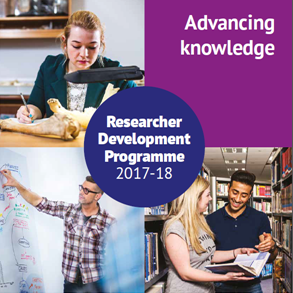 ollege would like to present the January monthly update.
ollege would like to present the January monthly update.
Happy New Year! This monthly update is for PGRs and their supervisors to outline upcoming research skills and development opportunities including events, workshops and networking opportunities supported by the Doctoral College. In this update we would like to promote the 3 Minute Thesis (3MT®) event, R.E.D talks, the Researcher Development Programme for 2017-18, and the 10th Annual Postgraduate Conference.
We are very happy to announce that registration for the 10th Annual Postgraduate Conference is now open. To book onto the conference please go to the Researcher Development Hub on the website. These exciting development opportunities are taking place now so check out our application processes and booking information to advance your current skills, knowledge and networks.
Don’t forget to check out the Doctoral College Facebook page.

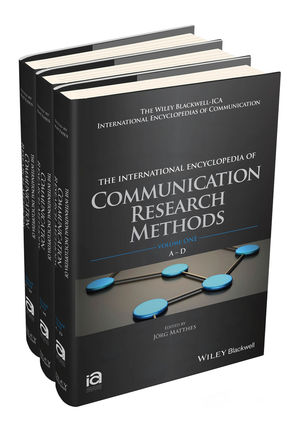 The first Chapter, “Performative Social Science”, in J. P. Matthes, C. S. Davis, & R. F. Potter (Eds.), The International Encyclopedia of Communication Research Methods, rehearses the development of Performative Social Science (PSS) as a research approach and method, developed over ten years at Bournemouth University through publication, film, research, workshops, Masterclasses, and PhD studies. Jones explains that PSS is not simply ‘art for art’s sake’ instead of research. PSS is research and dissemination practices based in the philosophy of Relational Aesthetics and has much in common with Social Constructionism. The ‘audience’ or reader/viewer are key to PSS, as is the wider community.
The first Chapter, “Performative Social Science”, in J. P. Matthes, C. S. Davis, & R. F. Potter (Eds.), The International Encyclopedia of Communication Research Methods, rehearses the development of Performative Social Science (PSS) as a research approach and method, developed over ten years at Bournemouth University through publication, film, research, workshops, Masterclasses, and PhD studies. Jones explains that PSS is not simply ‘art for art’s sake’ instead of research. PSS is research and dissemination practices based in the philosophy of Relational Aesthetics and has much in common with Social Constructionism. The ‘audience’ or reader/viewer are key to PSS, as is the wider community.
This 3-volume Encyclopedia is touted as the most current authoritative single-source reference on communication methods. The editors state that they have invited the best scholars from all over the world to accomplish this. Jones’ Chapter (draft) is now available at: https://www.academia.edu/22126458/Performative_Social_Science
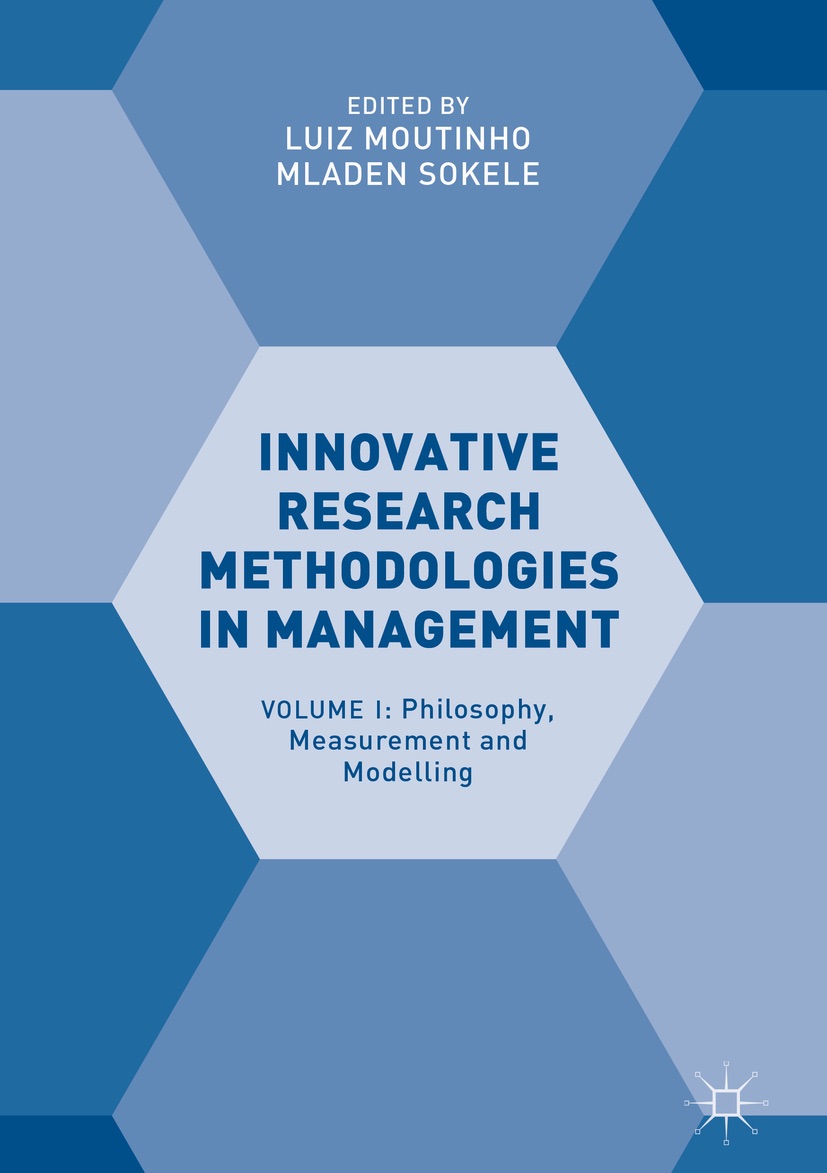 The second Chapter, “Emotivity and Ephemera Research”, in Innovative Research Methodologies in Management: Volume I, edited by L. Moutinho and M. Sokelem provides an in-depth worked example of PSS. The Chapter reports on a two-day experimental workshop in arts-led interviewing technique using ephemera to illicit life stories and then reporting narrative accounts back using creative means of presentation. The workshop took place at Bournemouth and participants were all University faculty members. A key to the process was in replicating what research participants may be feeling and going through when they share very personal stories with researchers. The exercise built a respect for this process by acknowledging that fact through the personal experiences and emotive connectivity of workshop participants.
The second Chapter, “Emotivity and Ephemera Research”, in Innovative Research Methodologies in Management: Volume I, edited by L. Moutinho and M. Sokelem provides an in-depth worked example of PSS. The Chapter reports on a two-day experimental workshop in arts-led interviewing technique using ephemera to illicit life stories and then reporting narrative accounts back using creative means of presentation. The workshop took place at Bournemouth and participants were all University faculty members. A key to the process was in replicating what research participants may be feeling and going through when they share very personal stories with researchers. The exercise built a respect for this process by acknowledging that fact through the personal experiences and emotive connectivity of workshop participants.
The Editors of this book on management were keen to include the Chapter, stating that many who are attempting a PhD, particularly using a qualitative approach, spend little or no effort in finding, then learning, an appropriate method for their research question. The felt that the Chapter would contribute substantially in this way to management studies. The Chapter was originally published as “A report on an arts-led, emotive experiment in interviewing and storytelling” in The Qualitative Report, 20(2), 86-92 and is available here: https://www.academia.edu/10835482/A_Report_on_an_Arts-Led_Emotive_Experiment_in_Interviewing_and_Storytelling
It is examples like these that substantiate the work being done not only by Jones, but by other members of the Centre for Qualitative Research (CQR) at Bournemouth University. Membership of CQR comes from across Health and Social Sciences’ disciplines at BU as well as from a number of other BU faculties, This attraction attests to the universal appeal of qualitative methods and particularly arts-led ones, including Performative Social Science, which are being developed through CQR.

The 10th Annual Postgraduate Conference abstract deadline is today. BU PGRs are invited to submit oral, poster or photography abstract to pgconference@bournemouth.ac.uk by midnight tonight, Thursday 4 January 2018.
Please ensure you follow the how to apply guidance (pdf 253kb) and you can download the Application Form (docx 545kb) here.
We look forward to receiving your application.
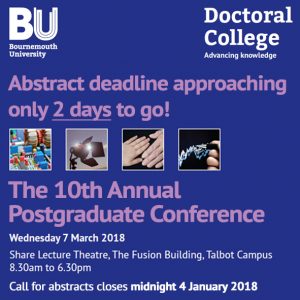
The 10th Annual Postgraduate Conference abstract deadline is near. BU PGRs are invited to submit oral, poster or photography abstract to pgconference@bournemouth.ac.uk by midnight, Thursday 4 January 2018.
Please ensure you follow the how to apply guidance (pdf 253kb) and you can download the Application Form (docx 545kb) here.
We look forward to receiving your application.
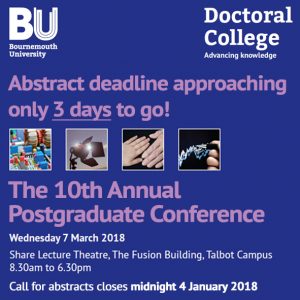
The 10th Annual Postgraduate Conference abstract deadline is near. BU PGRs are invited to submit oral, poster or photography abstract to pgconference@bournemouth.ac.uk by midnight, Thursday 4 January 2018.
Please ensure you follow the how to apply guidance (pdf 253kb) and you can download the Application Form (docx 545kb) here.
We look forward to receiving your application.
 Congratulations to PhD student Folashade Alloh and Faculty of Health & Social Sciences academics Dr. Desiree Tait and Dr. Clare Taylor on the first academic publication for 2018. Their paper ‘Away from home: A qualitative exploration of health experiences of Nigerian students in a UK university’ has been published in the Journal of International Students.
Congratulations to PhD student Folashade Alloh and Faculty of Health & Social Sciences academics Dr. Desiree Tait and Dr. Clare Taylor on the first academic publication for 2018. Their paper ‘Away from home: A qualitative exploration of health experiences of Nigerian students in a UK university’ has been published in the Journal of International Students.
Prof. Edwin van Teijlingen
CMMPH
Are you a PGR or do you know a PGR looking for an opportunity to share their research with peers and academic colleagues? If so, then the 10th Annual Postgraduate Conference hosted by the Doctoral College is the opportunity for you.
With only 1 week to go The 10th Annual Postgraduate Conference abstract deadline is near. BU PGRs are invited to submit oral, poster or photography abstract to pgconference@bournemouth.ac.uk by Thursday 4 January 2018 in order to be considered.
Please ensure you follow the how to apply guidance (pdf 253kb) and you can download the Application Form (docx 545kb) here.
Oral Presentation: 1st Prize £150; 2nd Prize £100; 3rd Prize £75
Poster Presentation: 1st Prize £100; 2nd Prize £75; 3rd Prize £50
Photo Presentation: Winner £50
*All prizes will be in the form of Amazon Vouchers
Successful oral presentations will be supported by a one day masterclass in presentation skills and successful poster presentations will be supported by a masterclass in creating an academic poster.
PGRs at all stages, on all research degree programmes, can apply.
Registration to attend the conference will open on Monday 8 January 2018.